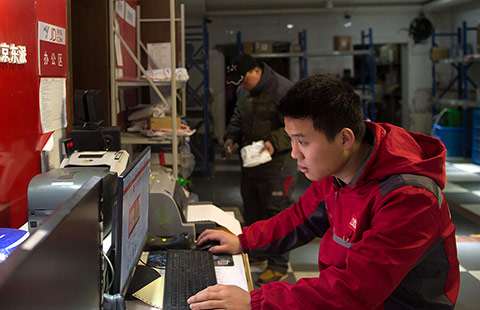Official approval processes to be cut: Minister
The minister of industry and information technology said on Monday the government will cut the number of authorities granting administrative approval, the latest sign that in the country's next phase of reform the market will play a greater role in the economy.
Miao Wei said the government is studying how to change the preliminary approval system, and also change the emphasis on administrative approval to emphasize on business operation.
He was speaking at a forum staged by the Development Research Center under the State Council, China's cabinet.
"On the one hand, we have administered a lot of issues that we shouldn't administer. On the other hand, there are many issues that we are supposed to administer but haven't been administered well," said Miao.
He said the areas in which the government should strengthen governance include ensuring a level playing field for companies, protecting intellectual property rights and offering public service.
Miao's comments came after top Chinese leaders vowed to change the government's role in the economy.
Premier Li Keqiang told a news conference earlier this month that the government would cut one third of the 1,700 administrative approval authorities held by various ministries under the State Council.
Zhang Weiying, a professor with Guanghua Management School of Peking University, said the goal of reducing the number of administrative approval authorities by a third is too conservative.
"Government has interfered too much in the economy. I think two-thirds of the approval authorities should be cut," Zhang said.
China's economic reform blueprint is expected to be rolled out in the second half of the year.
At the forum, Miao also elaborated on his views on the role of multinationals in China, and the excess capacity that has plagued the industrial economy.
Responding to concerns that multinationals still play a major role in China's industry after 30 years of reform and opening-up, Miao said they will continue to play a role in the nation's industrial upgrading.
He listed a series of areas where multinationals could find cooperation with their Chinese counterparts, including Chinese companies evolving toward the high end of the value chain, development of the service industry, and the "third industrial revolution" featured by cloud computing and 3D printing.
To tackle overcapacity, the government should encourage firms to increase innovation, Miao said.
"In this world of so many smartphones, why is the iPhone still so popular? Why do some people stay up late to line up outside the Apple store, just to buy the latest version of the phone? It is because of the power of innovation," Miao said.























